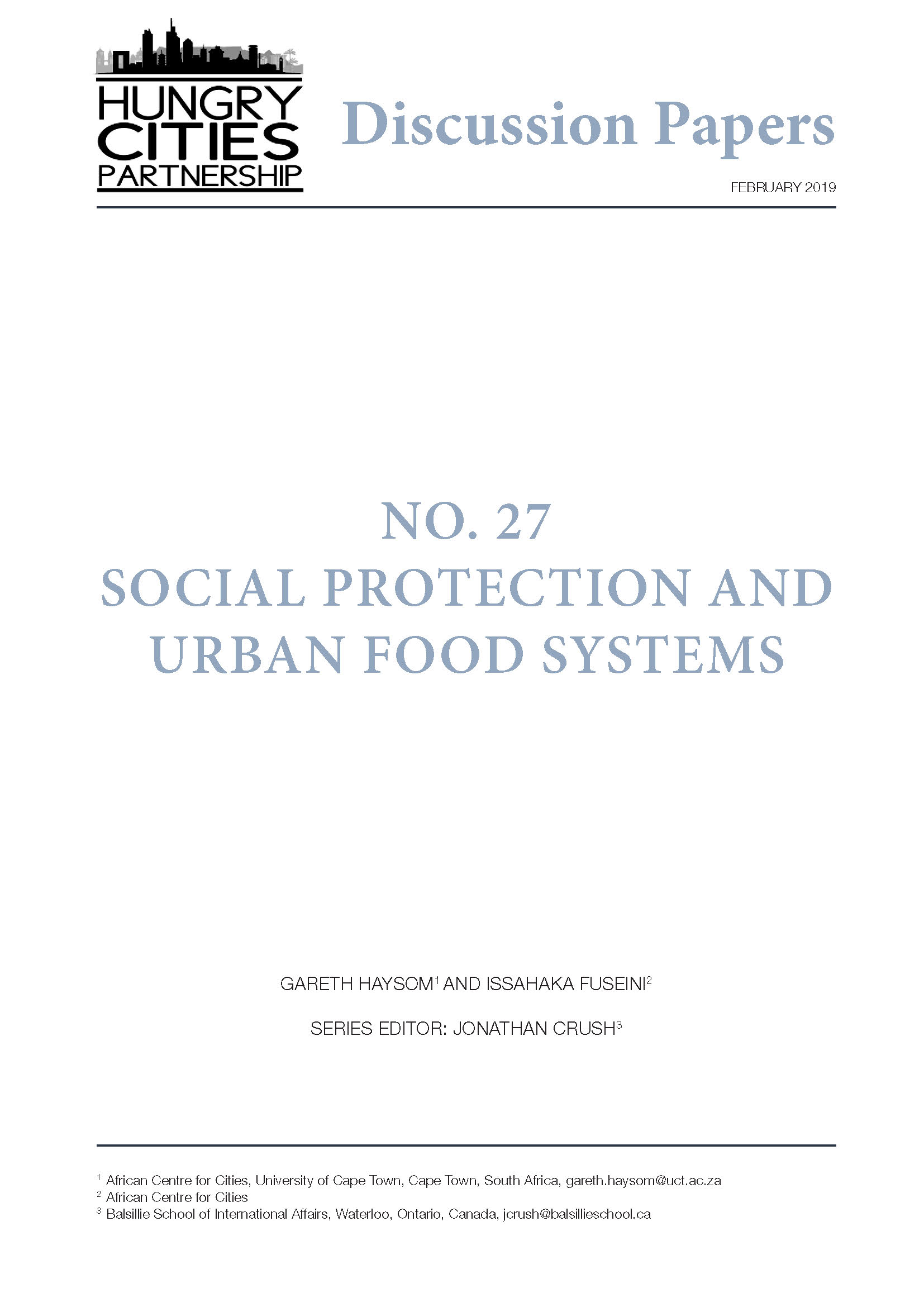This discussion paper examines development implications for food and nutrition when cash transfer interventions intersect with food system changes, particularly in urban areas where food is predominantly accessed through the market. South Africa is used as a case study because of its advanced social protection system as well as the rapid food system changes it is experiencing that are similar to those in other cities in the Global South. The authors consider the possible nutritional transition-related consequences for society, as well as the livelihood-related consequences for the poor when cash transfer systems, such as that of the South African social grant, are integrated with formal financial systems. They argue that while social protection and particularly cash transfers offer real benefits to society, certain social protection initiatives, especially those in urbanized environments experiencing food system transitions, could have unintended negative consequences. The authors ask whether specific social protection strategies could unintentionally exclude certain actors. Ultimately, in a rapidly urbanizing context, could certain approaches to social protection constrain the development ambitions embedded in these programs?

